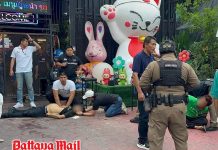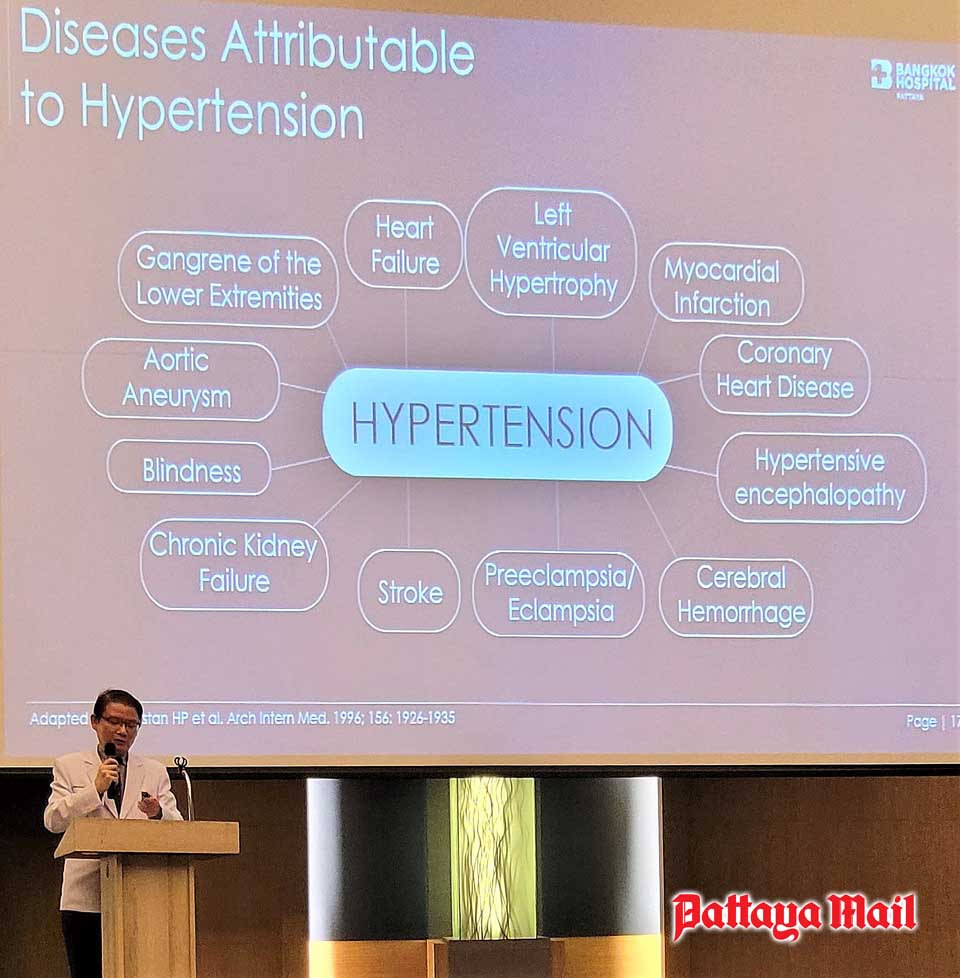
Dr. Chirapan Chawantanpipat. MD, Interventional Cardiologist in the Bangkok Hospital Pattaya’s Heart Center gave a very comprehensive and informative talk at the May 11, 2022 meeting of the Pattaya City Expats Club.
He explained that Hypertension is when Blood Pressure (BP) is too high, why it is called the “silent killer”, along with describing the causes, risks, diagnosis, harm it causes, and the self and medical treatment available. His key points were: (1) Hypertension is a silent killer, (2) the need for diagnosis if you are in a high risk category, and (3) that prevention is better than treatment.
He began by explaining what BP is. He described how BP affects blood properties, the heart muscle, and blood vessels. He then mentioned some of the risk factors and co-morbidities such as heart disease, respiratory disease, and diabetes which he would cover in more detail.
This was followed by noting that in most cases detection is only by BP measurement. He then explained how BP is measured and what constitutes Hypertension. In most cases, he said that Hypertension has no symptoms, thus why it is called the “silent killer”. BP is measured by using a BP monitor with a cuff placed around the upper arm. The measurement is usually read as two numbers with normal being 120/80. Hypertension is defined when the first number, Systolic blood pressure (pressure exerted when blood is ejected into arteries) is greater than 135 and Diastolic blood pressure (pressure blood exerts within arteries between heartbeats) of 85 mmHg or greater.
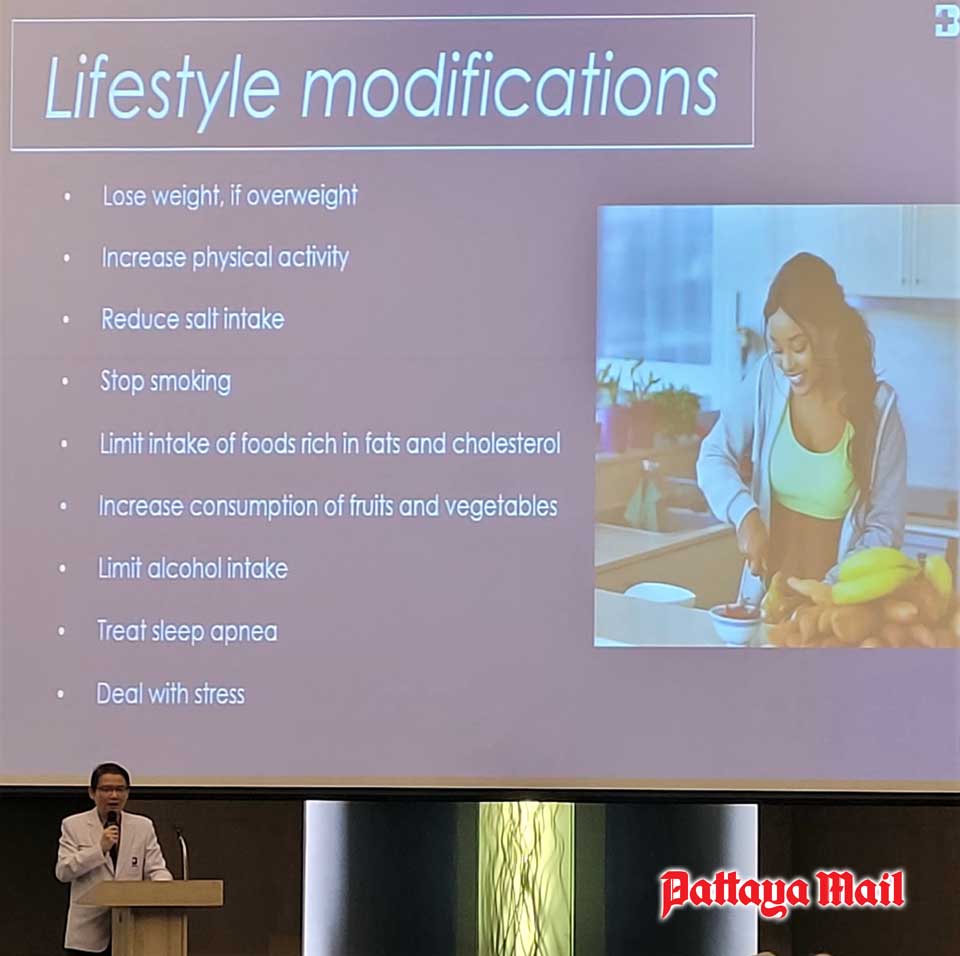
In most cases there are no specific complaints or manifestations other than elevated systolic and/or diastolic BP which is why it is commonly known as the “Silent Killer” as no one knows they have it unless they periodically measure their BP. But, in some cases there are indicators such as morning occipital headache (back of the head), dizziness, and fatigue. In severe hypertension it can be epistaxis (nosebleed) or blurred vision.
He said a good idea was to have a BP monitor at home for you to take periodic measurements, especially if you are in a high-risk category. But he cautioned that one measurement is not enough. He suggested that you take 3 measurements – Take the first, wait a few minutes to take the second and wait again to take the third. Discard the first one and average the second and third to arrive at a measurement. If it shows you fall into the Hypertension area, you should do again over a period of time. If these initial measurements show result in an extremely high reading or the measurements continue to show you a reading that falls exceeds 135/85, you should keep a record of the readings and consult with a physician.
Dr. Chirapan said it is important to treat Hypertension as it can cause various heart diseases; stroke; cerebral hemorrhage or brain dysfunction; kidney failure; gangrene of the lower extremities; aortic aneurysm; blindness; chronic kidney failure; and/or erectile dysfunction. Many of these conditions can be life threatening. He showed a few slides noting that Hypertension continues to be the number one contributor to global mortality.
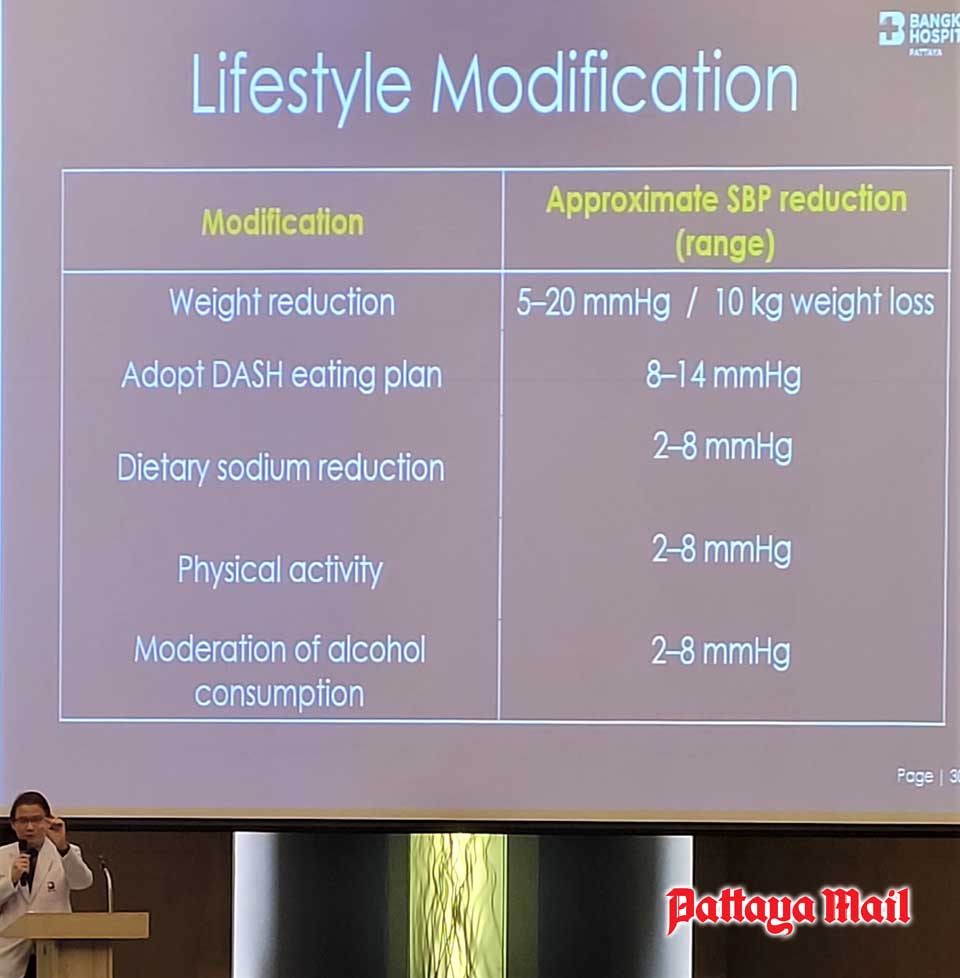
As to treatment he said that prevention is better than treatment by drugs. He listed the following as being high risk factors: advancing age, family history of cardiovascular disease, sedentary life style, psycho-social stress, smoking, high cholesterol diet, low fruit consumption, obesity & weight gain, diabetes, high cholesterol level, and high intake of alcohol.
If you are in a high-risk category, he suggested you should see your doctor for an evaluation. For treatment, preventative measures should start with non-drug treatments: DASH (Dietary Approaches to Stop Hypertension) diet; regular exercise & lose weight, if obese; reduce salt and high fat foods; avoid harmful habits such as smoking and large alcohol intake. You should deal with stress and treat Sleep Apnea if you have it.
As for drug treatment, there are many types of medicines to lower BP. Dr Chirapan presented a slide listing the types and purpose of each: Diuretics “water pill” (–ides), Beta-blockers (–olols), ACE Inhibitors (–prils), Angiotensin II Receptor Blockers (–artans), and Calcium Channel Blockers (–ipines). He mentioned that most are long acting and can be taken once daily.
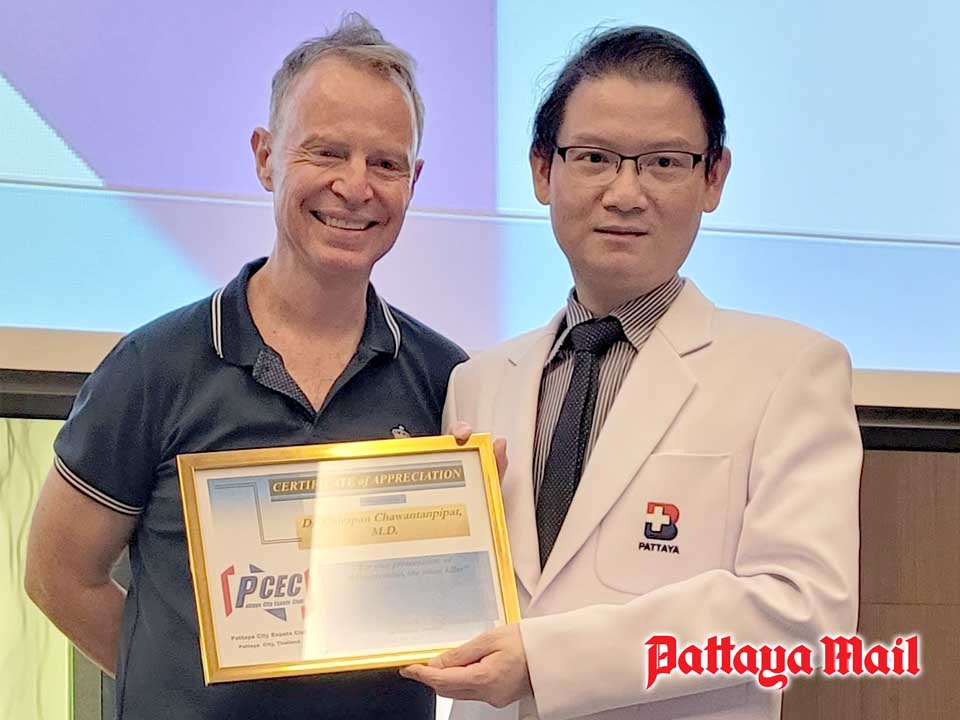
Upon conclusion of his talk, MC Ren Lexander gave Dr. Chirapan a Certificate of Appreciation for his presentation and also thanked the Bangkok Hospital Pattaya staff for providing free BP and other checks before the meeting and for the many vouchers provided to the audience for free ABI checks at the Hospital.
He then brought everyone up to date on the latest events. This was followed by George Wilson conducting the Open Forum where attendees can make comments or ask questions about Expat living in Thailand, especially Pattaya.
For more information about the PCEC, visit their website at https://pcec.club. To view a post presentation interview if Dr Chirapan visit the PCEC’s YouTube Channel for the video at https://www.youtube.com/watch?v=019iIR4eUT0. To view a video of the entire presentation visit https://www.youtube.com/watch?v=ZXOrlz59b44.

 |
 |
 |



